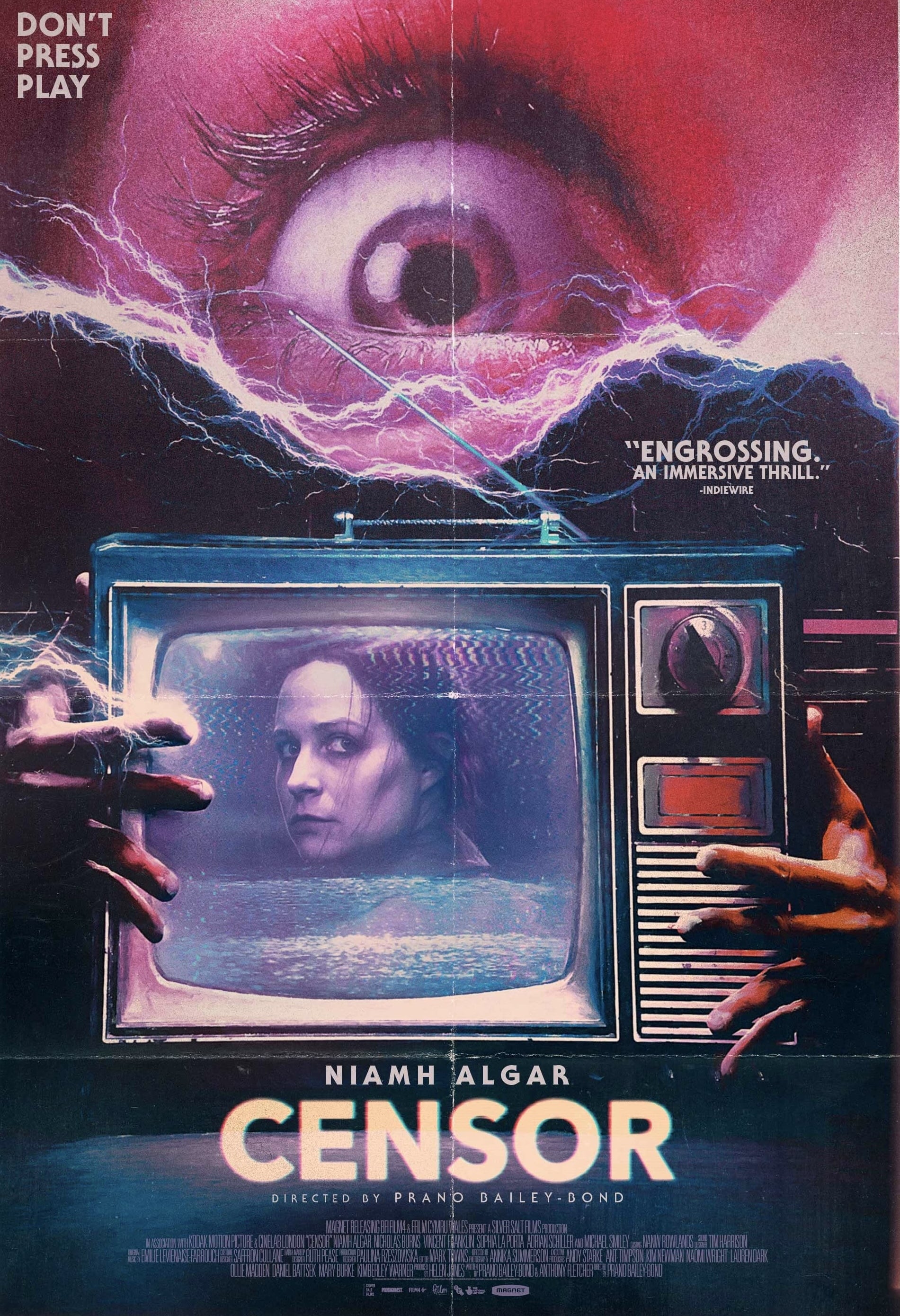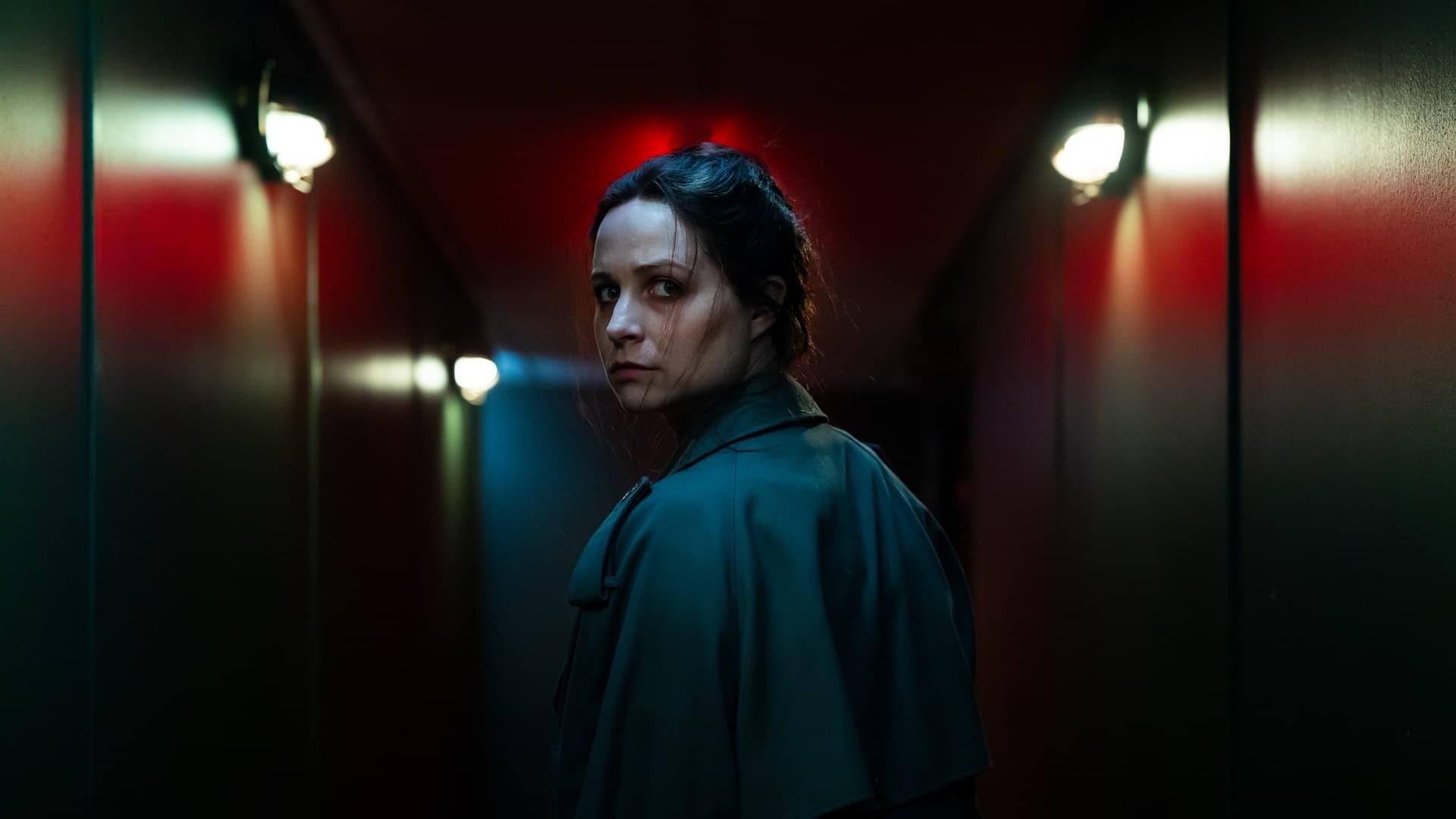Movie review: "Censor"
 Sunday, June 13, 2021 at 8:17PM
Sunday, June 13, 2021 at 8:17PM By Tim Brayton

Giallo homages, modernising the sordid, stylish vibe of Italy's cultishly beloved, violent and colorful 1970s thrillers, have gone from being an odd little niche project to a veritable cottage industry over the last decade. It takes more than just dousing a movie in candy colors to stand out, and so that's the first thing to praise about Censor, the extraordinarily self-assured debut feature by Welsh director Prano Bailey-Bond, is that it has so much to offer. Though it is very candy colored.
The film, currently open in limited release, isn’t exactly a giallo homage, to be honest. Above all else, it's a love letter to the Video Nasties, the notorious list of movies targeted for prosecution on home video by the British government’s Department of Public Prosecutions in the 1980s, when the film is set...
The censor of the title, Enid Baines (Niamh Algar), works for the DPP, determining how much needs to be cut out of any given movie before it was deemed appropriate for public consumption. We learn fairly early on that Enid lived through a traumatic experience in her childhood, relating to the disappearance of her sister. She's probably not the best candidate, psychologically speaking, to spend all of her days watching violent dismemberment and gougings and such things, but what finally triggers her psychological break (because of course she has one, or there wouldn’t be a movie) is seeing a woman who looks eerily like her sister in the latest film by a particularly notorious director named Frederick North. And this sends her on a deep dive into the world of horror filmmaking, trying to find out what’s going on – if anything is going on, assuming this isn’t just a hallucination brought on by the ugliness of her job.
The film is doing multiple things – celebrating grimy horror, condemning censorship, luxuriating in the vivid stylistic excess of '70s-style genre cinema – but the primary focus is on Enid's traumatised soul, her complete refusal to grapple with, or even name, whatever it was she saw all those years ago, and her current slippery grasp on real versus imagined horror. The film isn’t playing a subtle game: one character states outright that we can choose to "censor" our memories just like Enid and her colleagues censor movies for objectionable content, and the film enthusiastically draws a straight line between that concept and the entire Video Nasties phenomenon, which it suggests is more about the hang-ups of the censors than actually protecting the world from depictions of violence violence. There's at least some hint that we're meant to take away from all this that appreciating violent filmmaking as filmmaking can be a healthy, productive way to cope with violence in the world.

Mostly, though, we're here to watch Enid attempt to keep her past safely buried, and see as her grasp on reality starts to collapse while that happens. Censor is at its best when it's most narrowly focused as a psychological study, particularly when that psychology is fracturing; this especially happens in the last third, when the film’s form begins to actively mimic Enid's inconsistent grasp on reality, making sure that we understand that whatever we're seeing, it's at least a little bit to the side of whatever is actually going on on in objective reality. The gorgeously oversaturated cinematography by Annika Summerson and the post-production tinkering are at their best here as well, in a film that's overall extremely well-edited and well-shot.
This leaves the middle feeling, admittedly, a little stretched-thin.. We're never convinced as much as Enid is that her sister continues to exist, so spending a considerably amount of time following her investigation of where her sister went can't help but feel like it's just the glue getting us from the beginning of the movie to the end, not anything we actually are supposed to about or want to see. And this is also where the film's style is at its most sedate, lacking the fluid cutting between the real world and the pieces of cinema Enid is censoring. Censor is best when we feel the artifice all around us, and that drifts away for a bit in the middle. Still, the film's strengths are extraordinary, a marriage of period filmmaking pastiche and psychological disintegration that calls to mind the very best of these ‘70s horror throwbacks. Baily-Bond has made an extraordinary first feature, mixing acute character study, disturbing suspense, and gorgeous aesthetic indulgence, and if this is what she could achieve on her very first try, it looks like fans of stylized horror have a very exciting career to watch out for. B+
 Censor,
Censor,  Colorology,
Colorology,  Giallo,
Giallo,  Horror,
Horror,  Italy,
Italy,  Niamh Algar,
Niamh Algar,  Prano Bailey-Bond,
Prano Bailey-Bond,  Reviews
Reviews 

